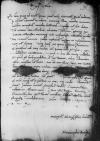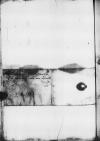Letter #842
Mariangelo ACCURSIO to Ioannes DANTISCUSAugsburg, 1532-10-20
Manuscript sources:
Auxiliary sources:
Prints:
| ||||||||||||
Text & apparatus & commentaryPlain textText & commentaryText & apparatus
Reverendissimo Domino, domino
Reverendissime Domine.
Et hoc quoque ad annum ipsum parum mihi fortunatum pertinere arbitror, quod absenti abeuntem te videre manumque illam omnibus amicam, omnibus munificam, omnibus doctiorem iungere non fuit datum. Tibi interim iter commodum adventus in patriam ceteraque ex sententia contigisse omniumque votis respondisse vehementer gaudeo. Nos
Tum atqui vale, praesul optime, et mihi numquam non in pectore in ore inque oculis.
Dominationis Vestrae Reverendissimae mancipium et tamquam filius oboedientissimus

